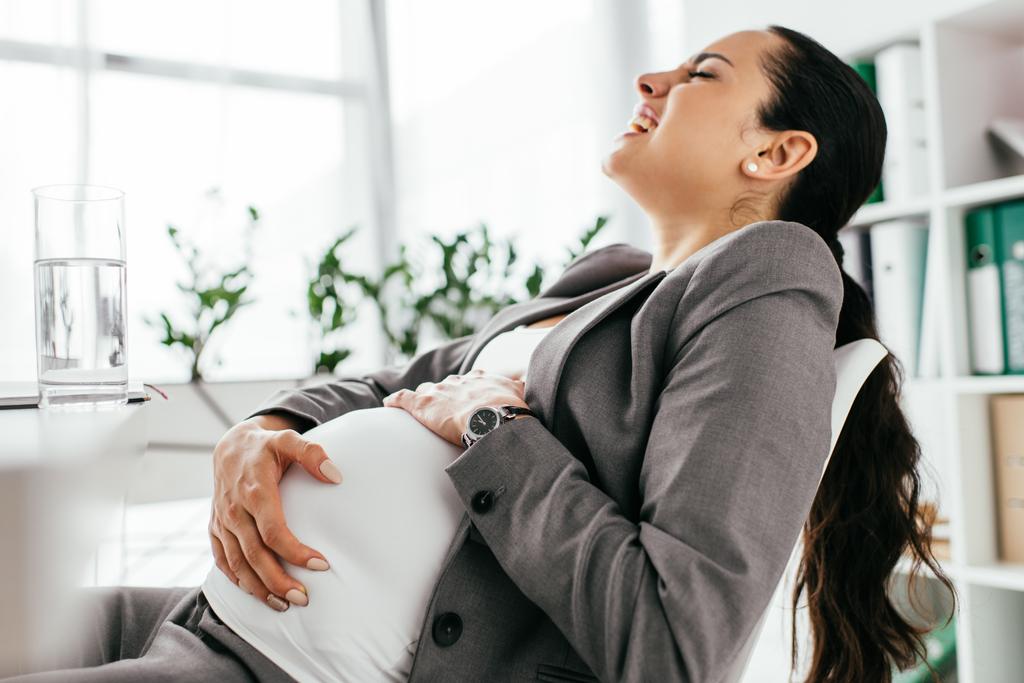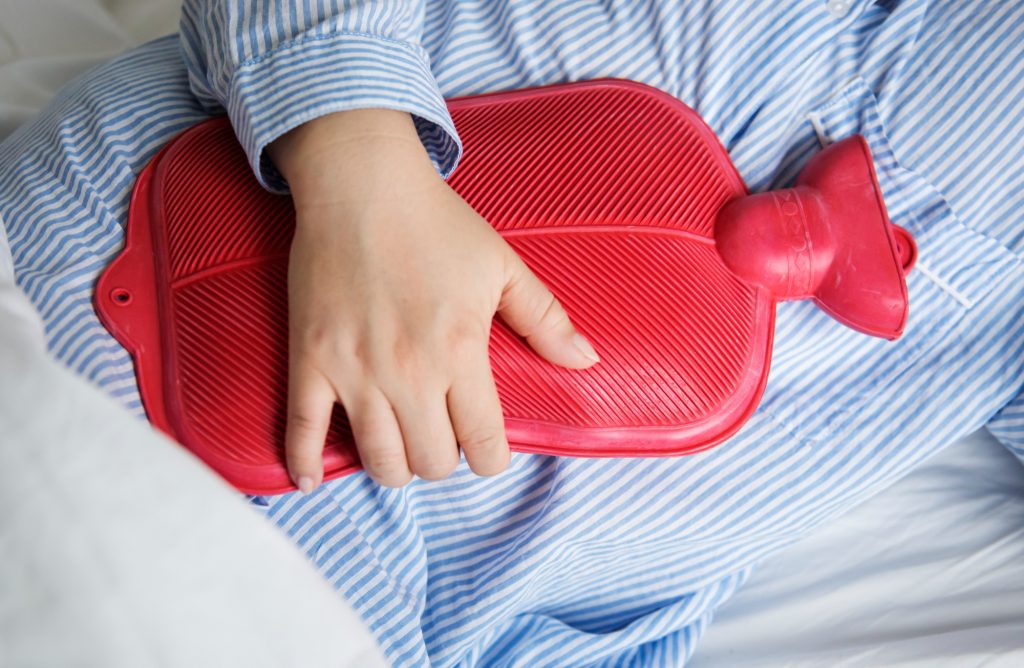Discover the potential benefits of using heating pads for pregnancy-related pains.
Can Heating Pads Help with Pregnancy-Related Pains?
Pregnancy is a beautiful journey, but it’s not without its fair share of discomfort. From lingering aches to nagging pains, the physical toll on your body can sometimes feel overwhelming. Thankfully, there are natural ways to find relief, and one such solution is using heating pads. In this article, we’ll explore the role of heating pads in alleviating pregnancy-related pains and discuss the safety precautions, best practices, and tips for maximizing pain relief.

Understanding Pregnancy-Related Pains
Being pregnant is like signing up for a rollercoaster ride of changes and surprises. As your body adjusts to accommodate the growing life inside you, it’s not uncommon to experience various discomforts. Let’s take a closer look at some of the common types of pregnancy pains.
Pregnancy is a beautiful journey filled with anticipation and joy, but it also comes with its fair share of challenges. From the moment of conception, your body begins to undergo incredible transformations to support the growth and development of your baby. Along with these changes, you may experience a range of discomforts that are completely normal and expected.
Common Types of Pregnancy Pains
1. Back Pain: Whether it’s lower back pain or upper back pain, the additional weight and shifted center of gravity can put a strain on your back muscles. As your baby grows, your uterus expands and pushes against your spine, causing discomfort and pain in your back. It’s important to practice good posture and engage in gentle exercises to alleviate this pain.
2. Round Ligament Pain: As your uterus expands, the ligaments supporting it can stretch and cause sharp, shooting pains on the sides of your abdomen. This is known as round ligament pain and is a common occurrence during pregnancy. It is caused by the stretching and pulling of the ligaments as your baby grows. Gentle stretching exercises and changing positions slowly can help relieve this discomfort.
3. Pelvic Pain: The hormone relaxin loosens your ligaments to prepare your body for childbirth. However, this can lead to pelvic pain and discomfort. The weight of your growing baby puts pressure on your pelvic area, causing pain and a feeling of heaviness. It’s important to listen to your body and take breaks when needed. Pelvic exercises and warm baths can also provide relief.
The Science Behind Pregnancy Discomfort
Now that we’ve identified some of the pregnancy-related pains, let’s delve into the science behind these discomforts. Your body is undergoing incredible changes as it creates and nurtures new life. The combination of hormonal shifts, increased blood volume, and physical adjustments can lead to discomfort.
Hormones play a crucial role in pregnancy, and their levels fluctuate significantly during this time. Estrogen and progesterone, in particular, increase dramatically to support the growth of your baby. These hormonal changes can affect the ligaments and muscles in your body, making them more susceptible to pain and discomfort.
In addition to hormonal changes, your body also experiences an increase in blood volume during pregnancy. This increased blood flow is essential for providing oxygen and nutrients to your growing baby. However, it can also lead to swelling and inflammation, which can contribute to pain and discomfort in various areas of your body.
Furthermore, as your baby grows, your body undergoes physical adjustments to accommodate the increasing size and weight. Your center of gravity shifts, putting extra strain on your back and pelvis. The added pressure on your joints and muscles can result in pain and discomfort.
The good news is that heat therapy can help ease these pains. Applying a warm compress or taking a warm bath can provide relief by increasing blood flow to the affected areas and relaxing tense muscles. It’s important to consult with your healthcare provider before using any heat therapy methods to ensure they are safe for you and your baby.
The Role of Heat Therapy in Pain Relief
Heat therapy has been used for centuries to soothe aches and pains, providing a natural, drug-free way to alleviate discomfort. By applying heat to specific areas, you can increase circulation, relax muscles, and reduce pain sensation. Here’s how it works.
When heat is applied to your body, it helps dilate blood vessels, allowing more oxygen and nutrients to reach the affected area. This increased blood flow promotes healing, relaxes muscles, and reduces stiffness. The warmth also triggers the release of endorphins, your body’s natural painkillers, providing you with a comforting sensation.
But did you know that heat therapy has been used in various cultures throughout history? Ancient Egyptians, for example, used heated stones to relieve muscle pain and promote relaxation. In traditional Chinese medicine, hot herbal compresses were applied to specific points on the body to alleviate pain and improve overall well-being.
Using heat to relieve pregnancy-related pains offers several benefits. First and foremost, it’s a non-invasive and natural solution that doesn’t carry risks associated with medications. Additionally, heat therapy is easily accessible, affordable, and can be administered in the comfort of your own home. It’s a practical and effective way to address those nagging aches and pains.
Furthermore, heat therapy can be combined with other complementary treatments to enhance its benefits. For example, pairing heat therapy with gentle stretching exercises can help improve flexibility and range of motion. Adding aromatherapy, such as using essential oils known for their soothing properties, can create a more relaxing and therapeutic experience.
It’s important to note that heat therapy should be used with caution and under proper guidance. While heat can provide relief for many types of pain, it may not be suitable for certain conditions or injuries. It’s always best to consult with a healthcare professional to determine if heat therapy is appropriate for your specific situation.
In conclusion, heat therapy is a time-tested method for pain relief that offers numerous benefits. Whether you’re dealing with muscle soreness, joint stiffness, or pregnancy-related discomfort, applying heat can help improve circulation, relax muscles, and reduce pain sensation. With its accessibility, affordability, and natural approach, heat therapy is a valuable tool in managing and alleviating aches and pains.
Heating Pads and Pregnancy: A Safe Combination?
While heating pads can be a savior in providing relief, it’s essential to take certain precautions when using them during pregnancy.
Pregnancy is a beautiful and transformative time in a woman’s life. However, it can also come with its fair share of discomforts. From backaches to muscle soreness, the physical changes that accompany pregnancy can sometimes be overwhelming. That’s where heating pads come in, offering a soothing and comforting solution.
But before you reach for that heating pad, it’s crucial to understand the safety precautions associated with its use during pregnancy. Your healthcare provider should always be your first point of contact when it comes to any concerns or questions regarding your pregnancy journey.
Safety Precautions for Using Heating Pads
Firstly, always consult with your healthcare provider before using a heating pad. They will guide you on the appropriateness and duration of heat therapy for your specific situation. Every pregnancy is unique, and what works for one woman may not be suitable for another.
When using a heating pad during pregnancy, it’s important to choose one with adjustable temperatures. This feature allows you to control the level of heat applied to your body, ensuring it remains within a safe range. Additionally, it’s crucial to avoid applying excessive heat to your abdomen, as this can potentially harm your baby.
Another important consideration is the duration of your heat therapy sessions. It’s recommended to keep them to a reasonable length, typically around 15-20 minutes. Prolonged exposure to heat can lead to overheating, which is not only uncomfortable but can also be dangerous for both you and your baby.
Lastly, it’s essential never to fall asleep with the heating pad on. While it may be tempting to drift off into dreamland with the soothing warmth, it poses a significant risk. Leaving the heating pad unattended can result in burns or other injuries, jeopardizing the safety of both you and your baby.
When to Avoid Heat Therapy During Pregnancy
Although heat therapy can offer much-needed alleviation, there are situations where it’s best to avoid it during pregnancy. If you have pre-existing conditions, such as hypertension or diabetes, it’s crucial to consult with your healthcare provider before using a heating pad.
Furthermore, if you’re experiencing vaginal bleeding, it’s essential to refrain from using heating pads until you’ve sought professional guidance. Vaginal bleeding during pregnancy can be a sign of various complications, and it’s crucial to prioritize the well-being of yourself and your baby by seeking appropriate medical advice.
Pregnancy is a time of joy, anticipation, and taking care of yourself and your growing baby. While heating pads can provide much-needed relief, it’s important to use them responsibly and with caution. Always consult with your healthcare provider, follow their guidance, and listen to your body’s needs. By doing so, you can ensure a safe and comfortable pregnancy journey.
Choosing the Right Heating Pad for Pregnancy Pains
When it comes to selecting a heating pad, there are a few features to consider to ensure maximum comfort and safety.
Features to Consider in a Heating Pad
Look for a heating pad that offers adjustable temperature settings, preferably with an automatic shut-off feature for peace of mind. Opt for pads with a larger surface area to cover more significant areas of discomfort. Soft and washable covers can also add to the overall comfort and ease of maintenance.
Top Heating Pads for Pregnancy-Related Pains
- SoothingPreggo Heat Pad: This specially designed heating pad caters to the unique needs of pregnant women, with a comfortable shape that conforms to your body’s curves.
- Mama’s Blissful Relief: This heating pad boasts multiple heat settings, ensuring you find the perfect level of warmth to relieve your specific pains.
- CozyMommy Deluxe Heat Wrap: This versatile heat wrap can be used on various body parts, providing targeted relief where you need it most.
How to Use a Heating Pad for Pregnancy Pain
Now that you’ve chosen the perfect heating pad, let’s explore the best practices for using it effectively.

Best Practices for Using Heating Pads
- Start by setting the temperature at a low or medium level, slowly increasing it if needed.
- Place a thin towel or cloth between your skin and the heating pad to avoid direct contact and prevent burns.
- Apply the heating pad to the affected area for 15-20 minutes at a time, allowing your body to cool down in between sessions.
Tips for Maximizing Pain Relief
Although heating pads can work wonders, combining them with other pain relief techniques can enhance their effectiveness. Consider gentle exercises, pregnancy-safe stretches, and relaxation techniques to complement the soothing heat therapy. Remember, finding relief is a personalized journey, so it’s crucial to listen to your body and adapt strategies based on what works best for you.
So, can heating pads help with pregnancy-related pains? Absolutely! With the right precautions, a suitable heating pad, and a playful dose of self-care, you’ll be able to find a cozy respite from those persistent pains. Embrace the warmth and enjoy this magical journey to motherhood with fewer aches and more smiles!



